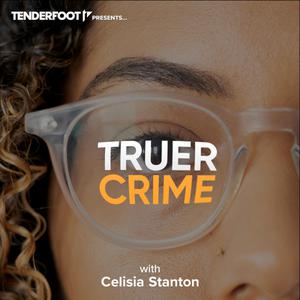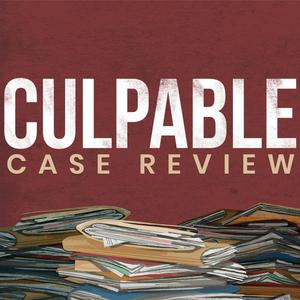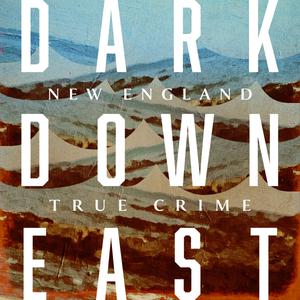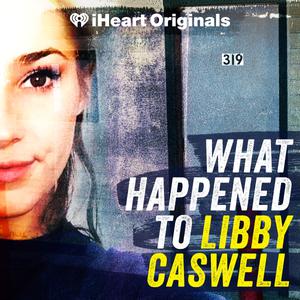
Truer Crime
Celisia Stanton
- 53 minutes 13 secondsLauren McCluskey
A student at the University of Utah, Lauren McCluskey began receiving threatening messages from her ex-boyfriend in the fall of 2018. For nearly three weeks, concerned for her safety, she reported this harassment to campus police again and again. Today’s episode is about the deadly cost of warnings ignored—and what happens when the people we trust to protect us fail to take action.
Please be aware that today’s episode contains references to sexual assault and suicide.
A full list of action items, sources, resources mentioned, and photos related to the case are available in the show notes of today's episode, https://truercrimepodcast.com/lauren-mccluskey
To learn more about listener data and our privacy practices visit: https://www.audacyinc.com/privacy-policy
Learn more about your ad choices. Visit https://podcastchoices.com/adchoices
20 January 2025, 8:04 am - 1 hour 7 minutesThe Assassination of Dr. Martin Luther King Jr.
On April 4, 1968, a single bullet ended the life of Dr. Martin Luther King Jr. The official story pinned the murder on James Earl Ray—a fugitive desperate to evade capture—but for decades, the King family has fought to expose a darker truth. In this episode, we uncover the buried evidence, tangled conspiracies, and a stunning 1999 civil trial that found the U.S. government complicit in King’s assassination. What does justice look like for one of history’s most celebrated heroes—and why is so much of this story still left untold?
Please note that today's episode includes language some listeners might find offensive as well as references to gun violence. Please take care while listening.
A full list of action items, sources, resources mentioned, and photos related to the case are available in the show notes of today's episode, https://truercrimepodcast.com/mlk-assassination
To learn more about listener data and our privacy practices visit: https://www.audacyinc.com/privacy-policy
Learn more about your ad choices. Visit https://podcastchoices.com/adchoices
20 January 2025, 8:02 am - 1 minute 32 secondsSneak Peek at Season 2
This season, Truer Crime goes deeper than ever, unraveling 10 unforgettable stories that challenge everything you think you know about true crime. From high-profile cases to untold injustices, these episodes explore the human stories that lie beneath the surface. Get an exclusive sneak peek at what’s ahead and prepare for a season filled with gripping narratives, unexpected twists, and the kind of storytelling only Truer Crime can deliver. Season 2 premieres January 20th, 2025, with new episodes dropping every Monday.
To learn more about listener data and our privacy practices visit: https://www.audacyinc.com/privacy-policy
Learn more about your ad choices. Visit https://podcastchoices.com/adchoices
14 January 2025, 1:00 pm - 2 minutes 43 secondsTruer Crime is Back—and We’re Throwing a Party!
Join us for Podcasting “From Below”, a celebration of storytelling, justice, and connection! This FREE, live event marks the highly anticipated launch of Truer Crime Season 2 and the debut of Good Judy Productions, a new Minneapolis-based podcast studio dedicated to amplifying unheard voices.
📍 Where: The Conn Theater at Plymouth Congregational Church (1900 Nicollet Ave, Minneapolis, MN)
🕖 When: Thursday, January 23 | Doors open at 7 PM, event begins at 7:30 PM
What to Expect:
✨ A conversation with Celisia Stanton (Truer Crime) and Chris Stedman (Unread, Good Judy Productions) about the stories we tell and why they matter.
📚 A pop-up shop from Black Garnet Books and a book drive for the Women’s Prison Book Project—bring a gently used book, purchase one onsite, or donate to the cause.
🌈 Resources and engagement opportunities from Queermunity, a Minneapolis LGBTQ+ resource center.
🧁 Complimentary treats, including celebratory cupcakes from Sift Gluten Free.
Can't make it in person? Sign up for our newsletter a truercrime.substack.com and we'll email you the link!
Don’t miss this unforgettable night of reflection, community, and celebration. Whether you’re a superfan or new to these stories, there’s something for everyone. See you there!
Parking + Entrance Info: Park free in the church parking lot along Franklin Ave and enter the theater at Door #3 on Nicollet Ave. The event is free and open to the public, registration is not required.
To learn more about listener data and our privacy practices visit: https://www.audacyinc.com/privacy-policy
Learn more about your ad choices. Visit https://podcastchoices.com/adchoices
13 January 2025, 1:00 pm - 1 minuteSeason 2 Trailer
Truer Crime is back for season 2 with 10 brand-new episodes you won't want to miss. From high-profile stories like the Manson Murders to lesser-known cases about everyday people — the victim of a modern lynching, a talk radio host gunned down in his driveway, a famous author and the man wrongfully convicted of her rape — each episode is a take on true crime you won't hear anywhere else. Be sure to catch the season premiere on January 20th, 2025, and listen to new episodes every Monday.
To learn more about listener data and our privacy practices visit: https://www.audacyinc.com/privacy-policy
Learn more about your ad choices. Visit https://podcastchoices.com/adchoices
7 January 2025, 4:33 pm - 51 minutes 54 secondsTamla Horsford
From 1920 to 1940, no Black people lived in Forsyth County, Georgia. None. But by the time Tamla Horsford moved there with her family, a lot had changed. Or so it seemed, until Tamla was found dead in the Fall of 2018. Suddenly, a century’s worth of trauma resurfaced in the once all-white Georgia county. Today’s episode reveals what happens when a woman and a county collide.
Please be aware that today’s episode references lynching and other racial violence. Please take care while listening.
Action Items Related to Today’s Episode:
Learn more about Tamla and follow any developments on her case at @justicefortam on Instagram (https://www.instagram.com/justicefortam/).
Check out and support The Georgia Newspaper Project at www.libs.uga.edu/gnp and www.libs.uga.edu/development/support.
Explore the Atlanta History Center's online collect Forsyth 1912 project, which seeks to collect the histories of descendants of Forsyth County’s expelled Black residents: https://www.atlantahistorycenter.com/learning-research/projects-initiatives/originals/forsyth-1912/. You can also donate to support their work here: https://www.atlantahistorycenter.com/support.
A full list of sources, resources mentioned, and photos related to the case are available in the show notes of today's episode, https://truercrimepodcast.com/tamla-horsford.
To learn more about listener data and our privacy practices visit: https://www.audacyinc.com/privacy-policy
Learn more about your ad choices. Visit https://podcastchoices.com/adchoices
29 December 2023, 8:02 am - 54 minutes 3 secondsSam Mandez
Sam Mandez was just 14 years old when his elderly neighbor, Frida Winter, was found murdered in her home, the same home Sam had painted with his grandfather just a few summers prior. It would be years before they set their eyes on Sam as their main suspect. And while he was just a kid when the crime took place, Sam was tried as an adult and eventually sentenced to life in prison for first-degree murder. Despite maintaining his innocence, he now faced a future behind bars. But what would that future *actually* look like? Today, we’re starting where a lot of other true crime stories end – in prison.
Please be aware that today’s episode discusses incarceration, solitary confinement, severe mental illness, suicide, and self-harm. Please take care while listening.
Action Items Related to Today’s Episode:
If you’re in the United States and you or someone you know is contemplating suicide, please call the National Suicide Prevention Lifeline at 800-273-8255 or visit their website at https://suicidepreventionlifeline.org/.
To learn more about solitary confinement and the movement to end its practice, I highly recommend checking out Solitary Watch at https://solitarywatch.org/.
A full list of sources, resources mentioned, and photos related to the case are available in the show notes of today's episode, https://truercrimepodcast.com/sam-mandez.
To learn more about listener data and our privacy practices visit: https://www.audacyinc.com/privacy-policy
Learn more about your ad choices. Visit https://podcastchoices.com/adchoices
22 December 2023, 8:02 am - 55 minutes 29 secondsMindy Dodd
If you consume a lot of true crime, you might have heard Mindy Dodd’s story before. Or at least one like it – the classic story of a housewife who, pushed too far, snaps and murders her husband. The scary music swells and the story ends neatly. The housewife is locked away. But what if that’s not the whole picture? Today’s episode is about the muddy middle that's so often left out.
Please be aware that today’s references sexual assault and domestic violence. Please take care while listening.
Action Items Related to Today’s Episode:
If you or someone you know is a victim of domestic violence and looking for anonymous, confidential help, you can call the National Domestic Violence Hotline at 1-800-799-7233.
Access additional resources at the National Coalition Against Domestic Violence at https://ncadv.org/.
Support domestic violence survivors by purchasing from Gifted by freefrom at https://giftedbyfreefrom.org/.
A full list of sources, resources mentioned, and photos related to the case are available in the show notes of today's episode, https://truercrimepodcast.com/mindy-dodd.
To learn more about listener data and our privacy practices visit: https://www.audacyinc.com/privacy-policy
Learn more about your ad choices. Visit https://podcastchoices.com/adchoices
15 December 2023, 8:02 am - 2 minutes 20 secondsOfficial Trailer
Do you ever listen to a true crime podcast and think “that’s not quite right…?” Same. Crime stories are hard to ignore and even harder to forget. But the thing is... they’re stories. And getting a story right is all about how you tell it. Truer Crime talks about real people — murdered, missing, misled — with more nuance, more context, and more questions. Hosted by Celisia Stanton.
You can see more of Rachel Monroe's work and find links to buy your own copy of "Savage Appetites" at http://www.rachel-monroe.com/
To learn more about listener data and our privacy practices visit: https://www.audacyinc.com/privacy-policy
Learn more about your ad choices. Visit https://podcastchoices.com/adchoices
8 December 2023, 4:35 pm - 47 minutes 45 secondsRelisha Rudd Remembrance Day (Republish)
July 11th marks “Relisha Rudd Remembrance Day’' in Washington DC. The purpose of this event is to spread awareness and let the public know that the search for Relisha is not over. Today we republish Episode 5 covering Relisha’s disappearance to bring more attention to her story.
---
No one had seen 8-year-old Relisha Rudd for weeks before she was finally reported missing in March of 2014. So where was she? Why did it take so long for anyone to notice? And who was to blame? Today’s episode explores what can happen when the systems built to protect families just — *don’t*.
Please be aware that today’s story contains references to suicide, gun violence, child abuse, and housing insecurity.
A full list of sources, resources mentioned, and photos related to the case are available in the show notes of today's episode, https://truercrimepodcast.com/relisha-rudd/
If you like Truer Crime, leave us a review! It's a great way to support our work and helps other people find us! Keep up with us on Instagram, Twitter, and Facebook @truercrimepod.
To learn more about listener data and our privacy practices visit: https://www.audacyinc.com/privacy-policy
Learn more about your ad choices. Visit https://podcastchoices.com/adchoices
12 July 2023, 1:00 am - 41 minutes 54 seconds*BONUS* The Real Impacts of True Crime Media w/ Sarah Turney
In 2001, Sarah Turney’s sister, Alissa, went missing. Nearly two decades later and no arrests in the case, the police told her they could no longer help her and she needed to get media coverage for the case. So, in 2019, Sarah started The Voices for Justice Podcast as a way to tell Alissa’s story. In August 2020, an arrest was made in the case and Sarah’s efforts were recognized by the Maricopa County Attorney. Since the arrest, Sarah has shifted her focus to advocating for other cases in need of justice.
In today’s bonus interview, Sarah reflects on what she’s learned along the way, and answers critical questions from her own experience as both a victim’s family member and a true crime media creator herself. Why might a family member tell their story on a podcast with exploitative tendencies? How does Sarah create a safe space for victims and their family members to share their stories on Voices for Justice? What could ethical true crime content look like? And what can true crime media consumers do to push the genre into a more ethical direction?
I was so honored to learn from Sarah, and I hope you enjoy this bonus interview while we are on a break from regular season episodes.
You can find Sarah Turney on TikTok, Instagram and Twitter (@saraheturney). Make sure to also check out Sarah's podcasts Voices for Justice and Disappearances.
If you need a transcript of today's episode, please email [email protected]
If you like Truer Crime, leave us a review! It's a great way to support our work and helps other people find this show! Keep up with us on Instagram, TikTok, Twitter, and Facebook @truercrimepod
To learn more about listener data and our privacy practices visit: https://www.audacyinc.com/privacy-policy
Learn more about your ad choices. Visit https://podcastchoices.com/adchoices
11 October 2022, 9:00 am - More Episodes? Get the App
Your feedback is valuable to us. Should you encounter any bugs, glitches, lack of functionality or other problems, please email us on [email protected] or join Moon.FM Telegram Group where you can talk directly to the dev team who are happy to answer any queries.
 Up and Vanished
Up and Vanished
 Hell and Gone
Hell and Gone
 Culpable
Culpable
 Dark Downeast
Dark Downeast
 What Happened to Libby Caswell
What Happened to Libby Caswell
 The Vanishing Point
The Vanishing Point